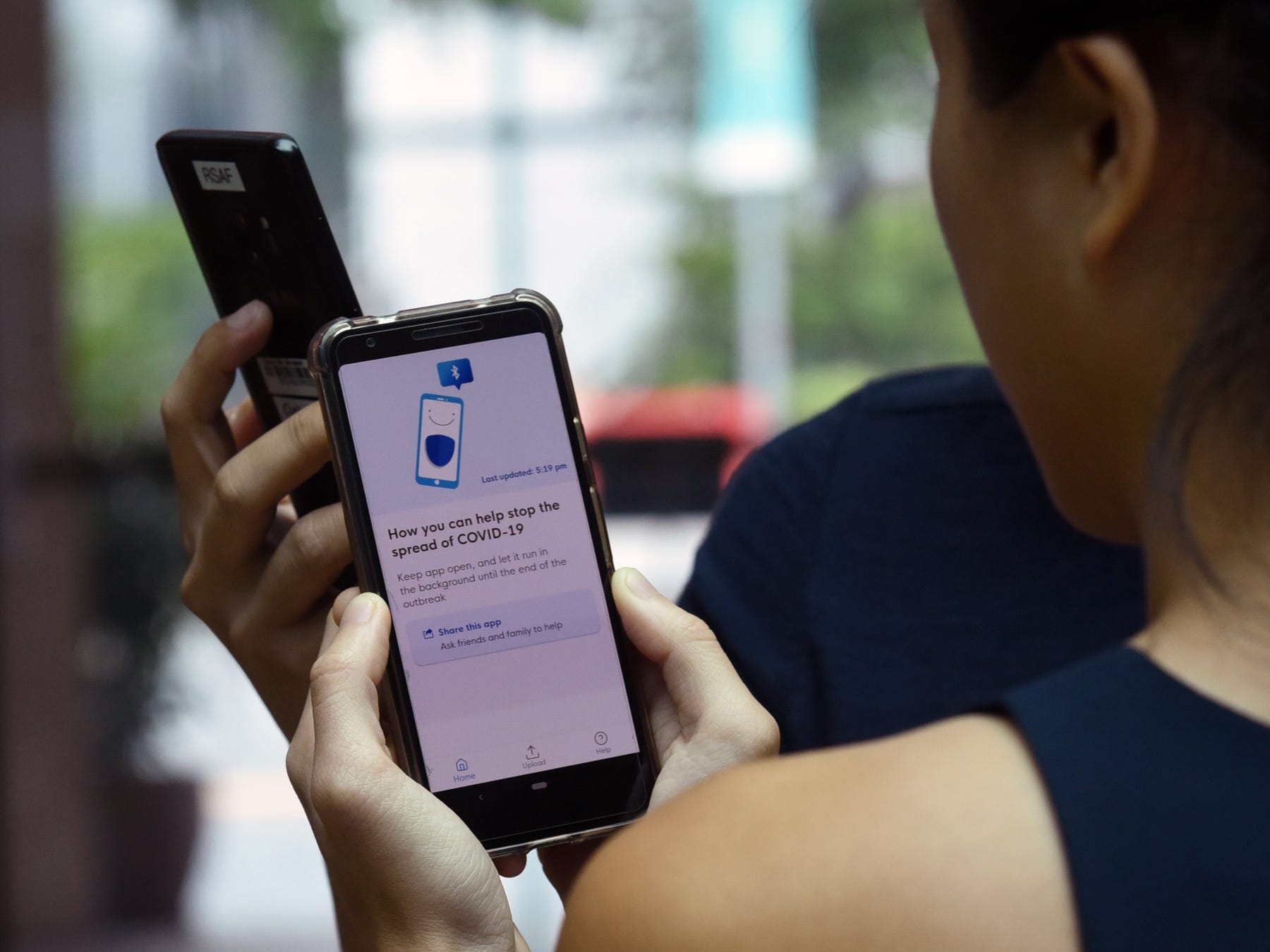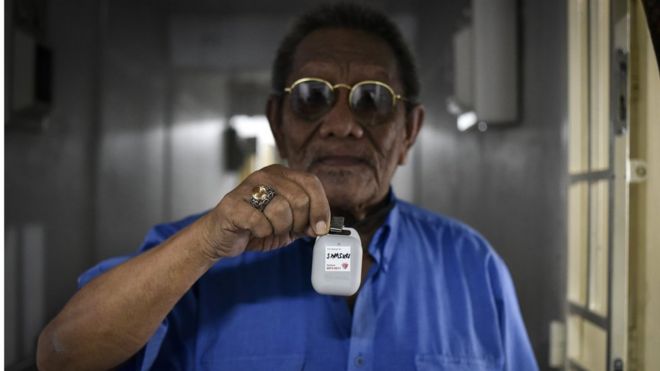
A GovTech staff member demonstrates Singapore's new contact-tracing smartphone app, called TraceTogether. /AFP
A GovTech staff member demonstrates Singapore's new contact-tracing smartphone app, called TraceTogether. /AFP
Travelers entering Singapore who choose to serve the self-quarantine order outside of dedicated facilities will have to wear an electronic monitoring device throughout the 14 days, starting next Tuesday, announced by the Immigration and Checkpoints Authority (ICA), Ministry of Manpower (MOM) and Ministry of Education (MOE) in a joint press release.
The devices use GPS and 4G or Bluetooth signals to determine if people on stay-home notices are within the range of their place of residence.
This order will apply to all travelers including Singaporeans, permanent residents, long-term pass holders, work pass holders and their dependents, except those under 12 years old.
"On arrival in Singapore, travelers serving their stay-home notice at their place of residence will be issued with an electronic monitoring device at the checkpoints, after immigration clearance," said the agencies. "They will need to activate the electronic monitoring device upon reaching their place of residence."
If the device is not activated properly as required, the authorities will trace down the person's location to offer assistance for any technique problems, and enforcement actions will be taken if necessary.
Any attempt to leave the place of residence or tamper with the electronic device will trigger an alert to the authorities, who will conduct follow-up investigations, except when the person is leaving his or her place of residence for an appointment to take the COVID-19 swab test.
Those who are caught flouting the stay-home notice requirements or tampering with the device may be fined up to 10,000 Singapore dollars (about 7,268 U.S. dollars) and jailed up to six months.
For foreigners who defy the order, authorities may take "further administrative actions," such as revoking or shortening the validity of permits and passes to remain or work in Singapore, the agencies added.

Singapore hands out TraceTogether tokens to vulnerable seniors. /Silver Generation Office (SGO)
Singapore hands out TraceTogether tokens to vulnerable seniors. /Silver Generation Office (SGO)
Since March 21, all travelers entering Singapore have to serve a 14-day stay-home notice either at their place of residence or at dedicated facilities.
Agencies have been monitoring compliance with the stay-home notice using a combination of manual and automated text messages and phone or video calls, as well as house visits.
As Singapore progressively lifts its travel restrictions, the electronic device will enable authorities to monitor with higher efficiency and lower risks of spreading the virus.
"With the progressive lifting of travel restrictions, the use of wearable electronic monitoring devices will enable ICA, MOM and MOE to monitor those serving stay-home notice at their place of residence more effectively," the agencies said.
The agencies also cleared the privacy concerns over the electronic monitoring device as the device "do not store any personal data and do not have any voice or video recording function," adding that data transmitted from the devices is protected by encryption.
As of Monday, Singapore has reported a total of 52,512 coronavirus cases, including 27 cases.
The government has been phasing out its "Circuit Breaker" or partial lockdown policy which ends on June 1, while trying to resume its economic activities safely with the help of technologies.
The city-state was one of the first countries to deploy a national coronavirus-tracing app as part of its strategy to contain the COVID-19.
The wearable TraceTogther Token complements the island's existing contact-tracing app, to identify people who might have been infected by those who have tested positive for the virus.
It is voluntary for everyone except migrant workers living in dorms, who account for the majority of Singapore's infections. All users have to do is carry one, and the battery lasts up to nine months without needing a recharge.
The local authorities say 2.1 million people have downloaded the software, representing about 35 percent of the population as of last month.
The government says the app helped it quarantine some people more quickly than would have otherwise been possible, which in turn curb the further spread of the virus.
(With input from agencies)